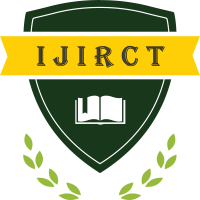Strategic Human Resource Management in Indian IT Firms: Practices and Challenges
Author(s): Dr Sushama Sharma
Publication #: 2408077
Date of Publication: 05.01.2017
Country: India
Pages: 1-8
Published In: Volume 3 Issue 1 January-2017
DOI: https://doi.org/https://doi.org/10.5281/zenodo.13348250
Abstract
Strategic Human Resource Management (SHRM) has emerged as a critical function in contemporary organizations, particularly within the Indian IT sector, which has been one of the fastest-growing industries globally. SHRM refers to the proactive management of human resources to align them with the strategic goals of an organization. Unlike traditional HR practices, which often focus on routine administrative tasks, SHRM emphasizes long-term workforce planning, talent management, and the creation of a competitive advantage through people (Wright & McMahan, 1992).
In the context of the Indian IT industry, SHRM plays a pivotal role in navigating the complexities of a highly dynamic and competitive environment. The IT sector in India has been a cornerstone of the country’s economy, contributing approximately 7.7% to India’s GDP in 2016, with a revenue of around USD 150 billion (NASSCOM, 2017). This rapid growth has led to significant challenges in managing a diverse and highly skilled workforce. IT firms are increasingly recognizing that their human capital is a critical asset, and effective SHRM practices are essential to leverage this asset for sustained competitive advantage.
The strategic importance of HRM in Indian IT firms is underscored by the need to manage talent in an industry characterized by high employee turnover rates, which averaged 15-20% annually during the mid-2010s (Kumar & Moorthy, 2015). Moreover, the IT sector is facing a growing demand for new skills due to rapid technological advancements, necessitating continuous learning and development initiatives. SHRM practices, such as strategic recruitment, performance management, and employee engagement, are thus crucial in addressing these challenges and ensuring that IT firms remain agile and competitive (Rao & Javalgi, 2011).
Furthermore, the global nature of the IT industry means that Indian firms are increasingly operating in diverse international markets, which requires them to balance global best practices with local cultural and regulatory nuances. This has led to the adoption of SHRM practices that are not only aligned with global standards but are also adaptable to the unique challenges of the Indian context (Budhwar & Varma, 2011). For instance, the focus on diversity and inclusion has become a key strategic priority, as Indian IT firms strive to create a more inclusive work environment that reflects their global clientele.
In conclusion, SHRM is integral to the success of Indian IT firms, as it enables them to align their human resources with their strategic objectives, thereby enhancing organizational performance and competitiveness. The following sections of this paper will delve deeper into the specific SHRM practices adopted by Indian IT firms, the challenges they face, and the impact of these practices on organizational outcomes.
Keywords: NA
Download/View Count: 224
Share this Article
